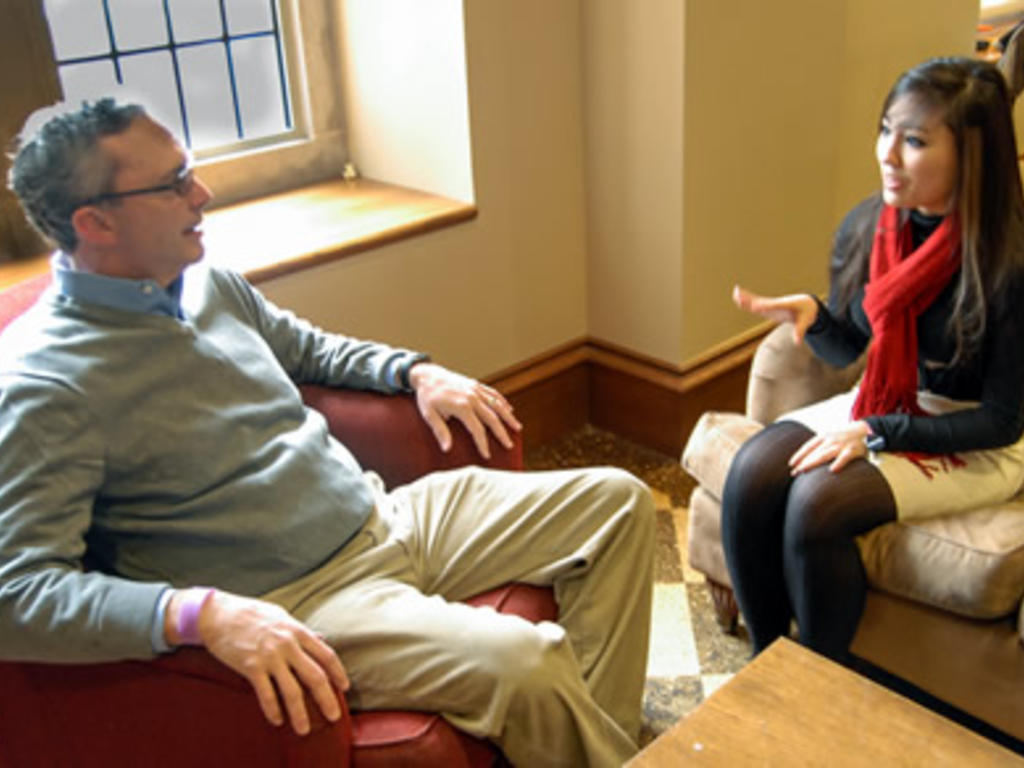For Tiana Winstead ’16, taking Professor Stephen Haynes’ religious studies course on the Holocaust meant so much more than showing up for class three times a week. “I remember mornings when my suitemates and I would be discussing genocide while brushing our teeth,” says Winstead to explain how in-depth discussions continued outside the classroom as part of the “Faith, Text and Genocide” learning community.
Learning Communities, which have been a part of the Rhodes campus since the mid-1990s, foster student learning both in and out of the classroom. A few of the stated goals are to enhance students’ critical thinking skills, deepen students’ sense of responsibility for their education, and develop college-specific learning skills in a students’ first semester. Students live in the same residence hall and share two of the same classes focused on a specific topic.
Professor Michelle Mattson, who is in her first year of overseeing the LC program, is in the process of finalizing the new communities for the fall of 2013. So far, they include “Studying Music in Memphis,” designed for students who have a passion for music, “Search in Memphis,” which will link the college’s historic Search program with a seminar that focuses on Memphis history, and a joint Search and Greek LC.
“Students in the communities get to live together, learn together, and take what they are learning outside of the classroom,” says Mattson.
Winstead, who is a graduate of Dresden High School in Dresden, Tenn., and 13 other first-year students took classes from Professor Steven McKenzie and Professor Haynes for “Faith, Text and Genocide.”
“Out of all of my classes, I felt the most comfortable in my LC classes,” says Winstead. “Since I already knew all of the students and professors, I was never afraid to say what I was thinking or to speak up in class. It made learning so much easier.”
Adds Mattson, “Professors engage with students far beyond the classroom and often have them over to their houses for dinner, host study sessions or invite speakers to campus. The idea really is to enrich the intellectual offerings of select courses by enhancing the connection among students and with professors.”
Fall semester 2012 introduced the Biology and Chemistry LC which allowed Fei-Lin Scruggs ’16, a graduate of Cardinal Gibbons Memorial High in Raleigh, N.C., an opportunity to a build a community that identified with her intellectual pursuits. Among the benefits she cited were having a biology tutor come to the residence hall each Sunday as well as establishing connections with the professors. “Even before school started, Dr. Darlene Loprete had us over to her house for dinner to talk to us about the classes we would be taking. That allowed us to ask questions and was a great opportunity to get to know a small group of students and professors.”
According to research done on the Rhodes learning communities over the past seven years, the retention rate for LC students is consistently higher than that of the overall college. And because the communities are usually interdisciplinary in nature, Mattson says they provide an avenue for pedagogical collaboration among some professors that might not exist otherwise. “Personally, I see that as being the most creative form of collaboration, and it is nice that our communities bridge disciplines, because in the end, that’s what we want our students to be able to do.”
(information compiled by Rhodes Student Associate Lucy Kellison ’13)
